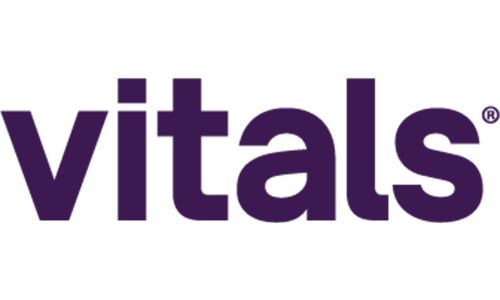ROI for Digital Marketing for Medical Practices
Digital marketing can seem daunting for medical practices, but it can be a crucial tool for growth and success. In this blog post, we’ll dive into the benefits of digital marketing for medical practices and how it can help increase your return on investment. So, whether you’re a small practice or a large healthcare system, let’s explore how digital marketing can make a positive impact on your ROI.

Introduction
The healthcare industry is constantly evolving, and medical practices are finding that digital marketing is becoming an increasingly valuable tool. For many practices, the challenge comes in determining the ROI of these efforts. However, aligning marketing strategies with ROI is critical to ensure that the practice is achieving its goals and seeing a return on investment. Tracking key metrics, such as cost per acquisition, engagement rate, and conversion rate, can help practices better understand the effectiveness of their marketing campaigns. By investing in personalized marketing strategies, utilizing social media, and carefully monitoring and analyzing data, medical practices can improve their ROI and ultimately attract more patients. Clinician Box is one company that is helping small medical practices compete by providing an entire digital marketing team for the price of an employee, saving practices a considerable amount of expenses. In conclusion, understanding and improving ROI in healthcare marketing is vital for any practice looking to remain competitive in the evolving digital landscape.
Understanding ROI in Healthcare Marketing
Understanding ROI (Return on Investment) is critical in healthcare marketing. It tells medical marketers whether their spending is generating a profit or not. With marketing costs rising in the digital age, measuring ROI has become increasingly essential. ROI helps allocate resources and justify marketing spend to stakeholders. However, marketing ROI in the healthcare industry isn't always simple since it is dependent on several factors such as engagement rates, customer lifetime value, and conversion rates. Monitoring these metrics can bring insight on where money is going and what actions one can take to improve results.
The Importance of ROI in Medical Marketing
The importance of ROI in medical marketing cannot be overstated. It is a key aspect of successfully running a healthcare practice, especially in the digital age. Tracking ROI can help healthcare marketing teams stick to their goals and budgets, providing a clear picture of what is working and what needs to be adjusted. With the right metrics in place, healthcare practices can ensure that their marketing efforts are generating a positive return on investment. This not only justifies the expenses incurred in healthcare marketing but also helps to allocate resources more efficiently. By monitoring and analyzing ROI, healthcare practices can optimize marketing campaigns and invest in personalized marketing strategies that are effective in connecting with patients. Overall, tracking ROI is an essential element for the success of any medical marketing campaign.
Three Metrics to Track for Healthcare Marketing ROI
To showcase ROI in healthcare marketing, it's crucial to track the right metrics. Three key metrics to track for healthcare marketing ROI are cost per acquisition (CPA), engagement rate, and conversion rate. CPA shows the cost of acquiring a new patient, engagement rate tracks how well your marketing efforts are resonating with your patient audience, and conversion rate measures how many patients are turning into paying clients. Monitoring these metrics can help medical practices make data-backed decisions to improve their marketing strategies and grow their patient base.
Cost per Acquisition
Cost per Acquisition is a critical metric to track for healthcare marketing ROI analysis. It allows practitioners to identify which marketing platforms are driving patient acquisition and at what cost. Tracking Cost per Acquisition enables medical practices to allocate marketing resources more effectively and optimize campaigns to reduce acquisition costs. By calculating the cost per acquired patient for every marketing campaign, practitioners can compare the ROI of different channels and revise strategies accordingly. In addition to Cost per Acquisition, Engagement Rate and Conversion Rate are two other metrics to track to assess ROI in healthcare marketing. By monitoring these three metrics, medical practices can gain valuable insight into which marketing efforts are driving patient growth and adjust their strategies accordingly.
Engagement Rate
Engagement rate is a crucial metric to track when measuring healthcare marketing ROI. It refers to the percentage of your audience that interacts with your content in some way, whether by liking, commenting, or sharing. A high engagement rate indicates that your messaging is resonating with your target audience and that they are interested in what you have to say. To boost engagement, personalized marketing strategies can be implemented to offer relevant content, as well as social media platforms that provide a space to connect with patients directly. Regular monitoring and analysis of these metrics can help healthcare marketers adjust their strategies based on what's working and what's not, ultimately leading to a better ROI. By partnering with a healthcare marketing platform like Clinician Box, small practices can leverage the benefits of digital marketing without incurring the high costs of an entire in-house team. With this type of support, medical practices can remain competitive in the market while still offering an engaging and relevant digital experience to their patients.
Conversion Rate
Conversion rate is a crucial metric to monitor when measuring ROI for digital marketing in medical practices. As mentioned earlier, the average conversion rate for healthcare brands is 3.2%, while high-performing brands can see a conversion rate as high as 21.2%. Tracking this metric is essential to determine how many leads are likely to become actual patients. By investing in personalized marketing strategies, utilizing social media to connect with patients, and monitoring and analyzing data, healthcare brands can improve their conversion rates and increase their ROI. Clinician Box is leading the way in enabling small medical practices to compete in the digital marketing world by providing an entire digital marketing team at an affordable price without the extra strain on human resources such as hiring talent, paying benefits packages, and negotiating commissions.
Three Ways to Improve ROI for Healthcare Marketing
To improve ROI for healthcare marketing, personalized marketing strategies, social media utilization, and data monitoring and analysis are key. With personalized marketing strategies, medical practices can reach their target audience in a more effective and personalized way, increasing the chances of acquisition and engagement. Utilizing social media platforms to connect with patients can also improve overall engagement and brand awareness. Lastly, data monitoring and analysis is crucial for tracking metrics such as cost per acquisition, engagement, and conversion rate, allowing for consistent optimization and improvement of marketing campaigns. Overall, effective healthcare marketing strategies and proper ROI analysis are crucial for the success and growth of medical practices.
Encourage Personalized Marketing Strategies
Investing in personalized marketing strategies is crucial for healthcare practices to improve their ROI. With the help of digital marketing tools, practices can personalize their messaging to each patient, offering more relevant and targeted communications. Research shows that personalized emails can increase ROI by up to 122%. Similarly, personalized website experiences can increase conversions by up to 900%. By utilizing patient data and leveraging digital marketing tools, practices can create tailored messaging based on patient demographics, preferences, and behaviors. Personalized marketing strategies not only improve ROI but also create more loyal, engaged patients who feel understood and valued by their healthcare providers.
Utilize Social Media to Connect with Patients
Another way to improve healthcare marketing ROI is by utilizing social media to connect with patients. Social media platforms, such as Facebook, Twitter, and Instagram, allow healthcare providers to engage with their followers and build stronger relationships with them. By sharing relevant and valuable content, healthcare providers can position themselves as an authority in their field and increase their brand visibility. Social media also provides an opportunity to personalize marketing efforts by responding to patient inquiries and comments, which helps to build trust and loyalty. This personal connection can lead to increased patient referrals and improved patient retention rates. However, it's important to note that social media marketing efforts should be regularly tracked and analyzed to ensure they are providing a positive ROI. By strategically utilizing social media, healthcare providers can establish a stronger online presence and connect with patients in a more meaningful and impactful way.
Monitor and Analyze Your Data
To truly understand and improve your ROI in healthcare marketing, it is important to monitor and analyze your data regularly. By doing so, you can identify which strategies are working and which ones need to be adjusted or eliminated. Additionally, monitoring your data allows you to stay up to date with trends and changes in patient behavior, enabling you to adjust your marketing approach accordingly. Clinician Box gives practices the resources needed to stay on top of their data and make informed decisions for their marketing strategy. The key to improving ROI is to continuously track and analyze your data, ensuring that your marketing efforts are driving patient acquisition and ultimately, revenue growth.
How Clinician Box is Changing the Industry by Helping Small Medical Practices Compete
Clinician Box is an innovative solution that is helping small medical practices keep up with the changing landscape of healthcare marketing. The digital marketing team at Clinician Box is providing affordable services that can compete with those of larger institutions in terms of quality and effectiveness. By offering a comprehensive suite of digital marketing services, such as website design, search engine optimization, social media management, and content creation, Clinician Box is leveling the playing field for small medical practices. Through personalized strategies and data analysis, Clinician Box is helping these practices attract new patients, engage with current ones, and ultimately, increase their ROI. With the help of Clinician Box, small medical practices can focus on their patients and leave their digital marketing worries in capable hands.
How Clinician Box Saves Expenses by Providing an Entire Digital Marketing Team for the Price of an Employee
One way for medical practices to improve their ROI in marketing is to utilize the services of companies like Clinician Box. This company can provide an entire digital marketing team for the price of an employee, which can save medical practices on expenses and improve ROI. By having access to a full marketing team, practices can create personalized marketing campaigns that are tailored to their specific needs and target audience. Clinician Box also offers social media management services that can help connect practices with patients and increase engagement rates. By monitoring and analyzing data, practices can continue to improve their ROI and enhance their overall marketing strategies. Through the use of cost-effective digital marketing solutions, medical practices can compete with larger healthcare organizations and attract new patients to their practice.
Conclusion: The Future of Medical Marketing ROI
In conclusion, the future of medical marketing ROI lies in personalized strategies, social media engagement, and data monitoring. Healthcare marketing teams need to be able to track metrics that showcase their ROI, such as cost per acquisition, engagement rate, and conversion rate. The industry is changing, and small practices need to compete with larger institutions. Clinician Box has developed a program that allows even small medical practices to have digital marketing teams with the expertise to take on the competitive healthcare environment and get the patients they want. As new techniques and software emerge, healthcare marketing teams must adapt to keep up with the competition. The key to success is a data-driven approach, personalized messaging, and engagement with patients on social media. By keeping these tactics in mind, healthcare marketing teams can improve their ROI and grow their practices.









Take control of your online medical presence with Clinician Box!
OUR PARTNERS
Quite possibly the EASIEST way for doctors and healthcare businesses to get found online.
We provide high-quality digital marketing services for doctors, hospitals, and businesses in healthcare. We offer comprehensive solutions to optimize online presence that includes responsive website design, digital ads, search engine optimization, social media management, graphic design, and reputation management.
MENU
GET IN TOUCH
Business Addresses:
Clinician Box | Louisville
9850 Von Allmen Ct
Suite 201, PMB 0572
Louisville, KY 40241
Clinician Box | Lexington
212 N 2nd St.
Suite 100
Richmond, KY 40475









